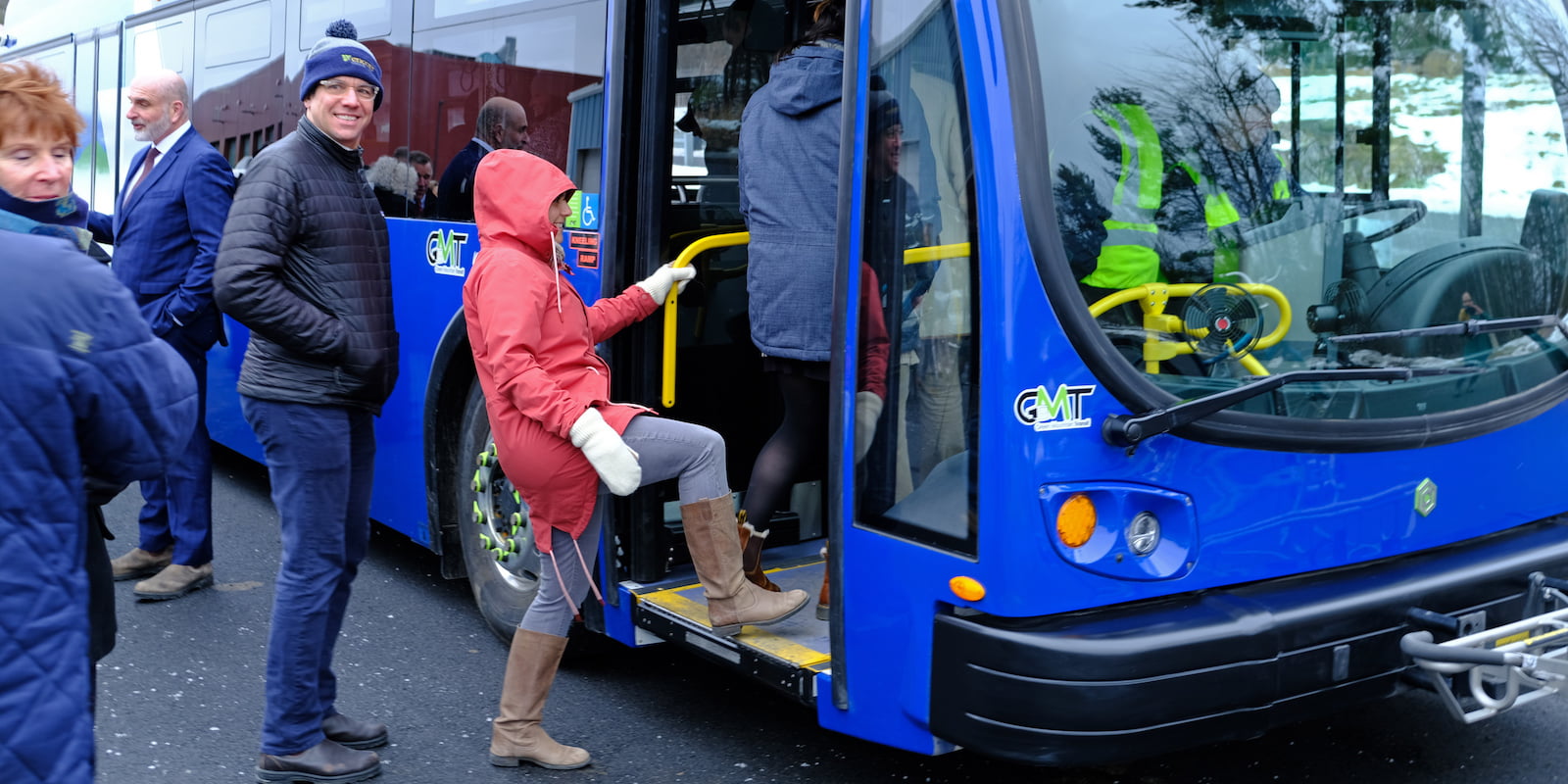There are clear environmental and economic benefits to switching over to electric vehicles for household travel, but the greatest savings and greenhouse gas reductions occur when we reduce the amount of driving we do. For individuals, that may include swapping out a car trip with walking, bicycling, or working from home. Public transportation by bus and rail can also reduce vehicle travel for those living in areas served by these options.
Diesel Dilemma
Most transit and school buses on the road today are powered by diesel fuel, creating tailpipe emissions that add to pollution. This is particularly problematic in urban communities where higher concentrations of pollution cause more health issues. In addition to carbon emissions, noise pollution associated with diesel buses can also have impacts on those living along bus routes. Fortunately, advancements supporting electrification of personal vehicles, like decreasing battery energy storage prices, are also benefiting larger buses and trucks. Many bus manufacturers already offer electric options, with some focused exclusively on this market segment. Purchase prices of electric transit and school buses have decreased in the past few years, but they remain 25-40% more expensive than fossil-fueled vehicles to acquire. However, operating cost savings due to reduced fuel purchases and maintenance needs may cover the higher purchase cost over the life of the equipment, especially for high-use transit buses. Many transit operators have also used grant funding to cover the incremental cost, either through federal grants, state funds stemming from the Volkswagen diesel emissions scandal settlement, or from other sources.
Electric Alternative
California is a national leader supporting the transition to zero emission buses. The state has developed regulations requiring all bus purchases after 2029 to be battery electric or hydrogen fuel cell. Bus operators in many northeastern communities have also started to embrace electrification. Colder winter temperatures have led most of these pioneers to start testing the waters with a small number of electric buses to ensure the technology and vehicles selected will meet their requirements in all weather conditions.
Green Mountain Transit (GMT), based in Burlington, Vermont, is among the latest to initiate a pilot of two full-sized Proterra electric buses. These GMT buses were funded by a combination of sources, including a Federal Transit Administration (FTA) low or no-emission grant and funding provided by Burlington Electric Department (BED) to help them meet their state renewable energy standard obligations to reduce fossil fuel use. BED has already sourced 100% of their power from renewable sources, amplifying the emission reductions associated with the switch to electric buses. Recent analysis suggests the new buses will each reduce CO2 emissions by 78 metric tons annually. GMT also received FTA funding for two smaller buses that are currently in the procurement process.
The State of Vermont also recently announced Volkswagen environmental mitigation funding awards for their $2 million electric bus pilot program. Marble Valley Transit in Rutland was awarded funding for two transit buses. Barre Unified Union School District, Champlain Valley School District, and Franklin West Supervisory Union also received funding for two electric school buses each. This Vermont pilot includes technical assistance and monitoring that will document the experience of purchasing and running the buses to inform best practices as additional electric buses are integrated into transit and school operations.
You can learn more about what’s happening in your region by searching for your state’s Volkswagen environmental mitigation program and inquiring with transit and school bus operators on their plans. Expect to see more electric vehicles in transit fleets because they are healthier for riders, cleaner to operate and less expensive to own over their service life.
David Roberts is the Drive Electric Vermont coordinator. He has driven all-electric vehicles for the past seven years and says if you have to drive, drive electric. This piece originally appeared in Green Energy Times.

